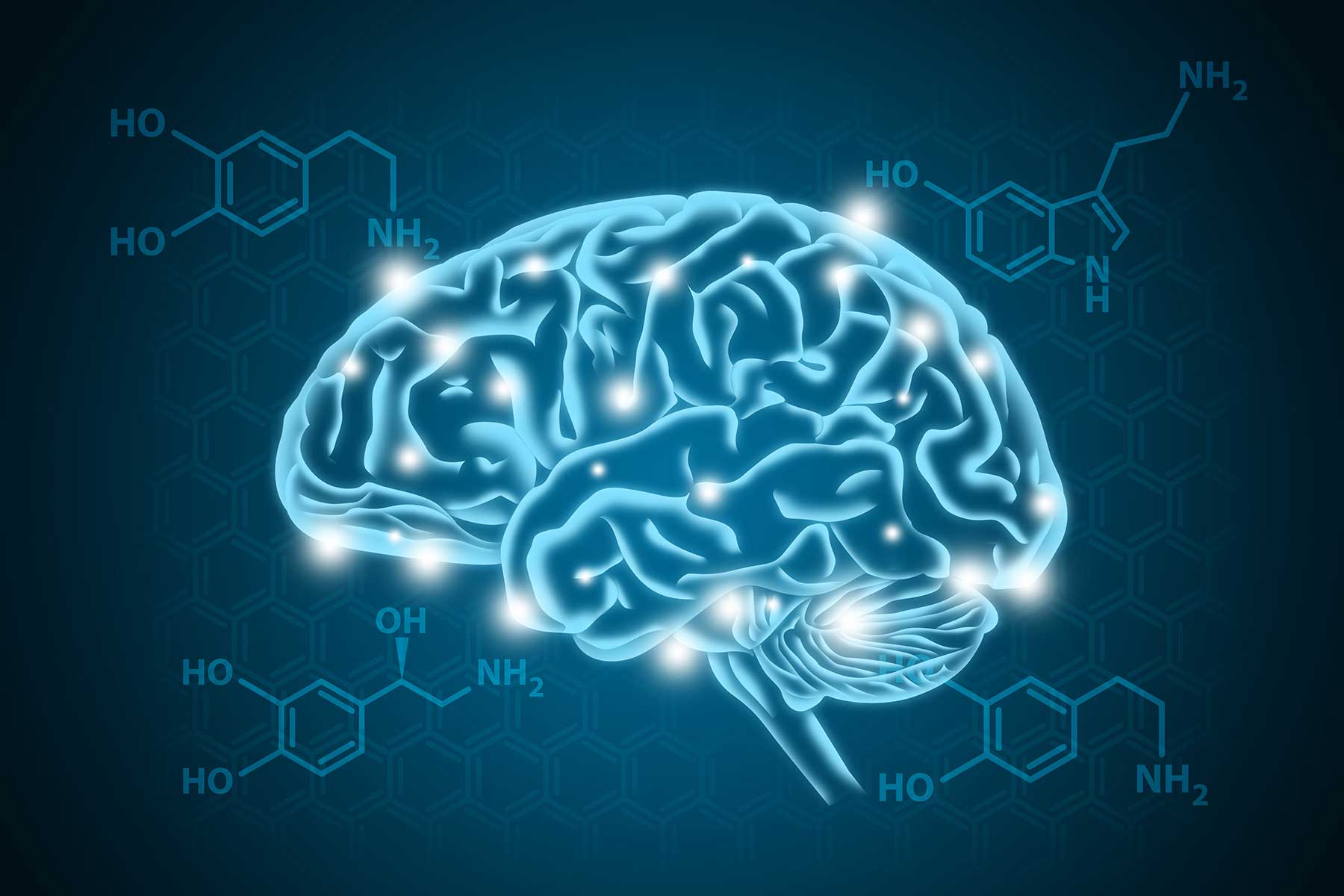If you or a loved one has a chemical dependence, you may wonder what dopamine is. Dopamine has a deep connection to addiction and plays a significant role in how the brain regulates reward-motivated behavior. To learn more about dopamine and how help is possible for addiction, contact Oceanfront Recovery at (877) 296-7477. We can help you find addiction treatment near you. Our center in Laguna Beach, CA is located just blocks away from the Pacific Ocean and offers a variety of options for those suffering from chemical dependency. Asking for help is the first step in recovering from addiction, and our team is here to help. A brighter, healthier future is possible.
What Is Dopamine?
What is dopamine? Dopamine is a chemical messenger in the brain known as a neurotransmitter. It has been referred to as the “pleasure chemical” in the brain because when we do things that create a feeling of reward, dopamine levels are increased. Usually, dopamine increases occur from naturally pleasurable activities, like sex or eating food, but drugs create huge surges in dopamine that can strongly affect the brain.
Drugs that increase dopamine levels in the brain are highly addictive because they make a person feel incredibly good. This feeling is more powerful than any natural reward, and it causes people to come back for more even after the initial positive experience has worn off. As a result, drug use can cause the brain to become desensitized to natural rewards and produce a compulsive need for the drug.
The Role of Dopamine in Addiction
Dopamine is linked to addiction because it plays a role in reward-seeking behavior. When a person engages in an activity that causes the release of dopamine, they will seek to repeat this behavior again and again. This is because the brain begins associating the activity with pleasure and continues to seek out that pleasure.
In cases of addiction, a person may repeatedly use drugs in order to experience a strong surge of dopamine. As the person continues to use drugs, their brain chemistry is altered, and they will develop tolerance, as well as dependence. This means that they must use drugs more and more in order to achieve the same effect, leading them deeper into addiction.
Signs That Dopamine Is Out of Balance
When dopamine is out of balance, it can manifest in various ways. Signs that dopamine may be out of balance include:
- Fatigue
- Depression
- Anxiety
- Lack of motivation or pleasure in activities that used to be enjoyable
- Difficulty concentrating
- Memory problems
- Sleep disturbances
If you or a loved one is exhibiting any of these symptoms, it may be due to a dopamine imbalance. While dopamine imbalances can be caused by various factors, it is important to note that drug use can have an effect on the brain’s dopamine levels and thus can contribute to a dopamine imbalance.
Find Treatment for Addiction at Oceanfront Recovery
Your story can become one of happiness, joyousness, and freedom in sobriety. You can make the courageous decision to seek help today and embark upon the rewarding journey of recovery. Oceanfront Recovery, located in beautiful Laguna Beach, was founded to provide the best care and service possible at an affordable price. Our serene setting helps to create a calming and restorative atmosphere for healing.
Contact Oceanfront Recovery at (877) 296-7477 today to learn more about how our addiction treatment options can help you or a loved one find lasting recovery from addiction. Our knowledgeable admissions staff is available to answer any questions you may have about dopamine, addiction, and recovery. We can help you begin the journey of transformation toward a healthier, happier life.







